Before we get to our original list of some of the most dangerous animals in the world, let’s look at a few new additions. These are creatures we didn’t include in our first list, but they all have been known to be rather deadly to humans.
Box Jellyfish
The box jellyfish is one of the most venomous animals you could come into contact with. Fortunately “box jellyfish” actually encompass several species — around 30 of them according to the National Science Foundation (NSF) — and most won’t kill you if they sting you.
Unfortunately for Australians, one of the most dangerous varieties frequents their waters (as is another variety more recently identified in Japan). These, the Chironex fleckeri, can kill a human in just a few minutes after being stung. According to the NSF, this jellyfish in particular kills at least one Australian each year, although they suspect other deaths being attributed to heart failure from Irukandji syndrome might also be a result of jellyfish. The Foundation also reports that box jellyfish as a whole kill 20 – 40 people each year just in the Philippines.
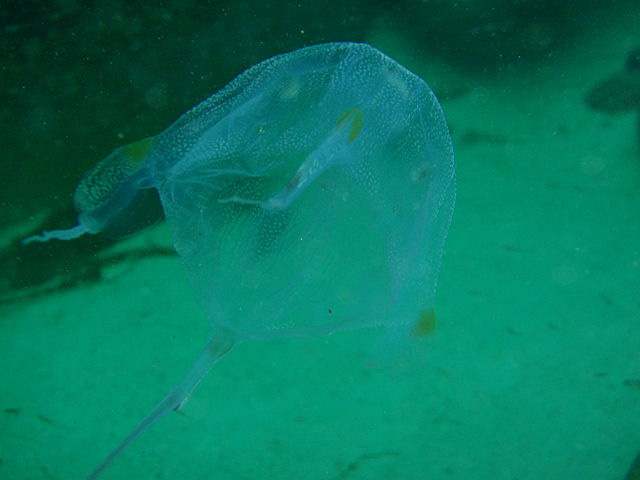
Bees
If you’re anything like me, seeing a bee buzzing around you makes you a bit uncomfortable. You might even flinch or try to run from it (okay, maybe that’s just me being a baby about it). But really, who would want to be stung? Certainly not those who are allergic to their venom (around one or two people out of every 1000 of us).
Allergic reactions to bee stings can result in anything from simple hives to death. The Boston Children’s Hospital estimates that approximately 100 people die from bee stings each year, and that’s in the United States alone.
Even if you’re not allergic, another issue is receiving a large number of stings from a swarm all at once. While your body might be able to process the venom of one, thousands could still be deadly. According to the U.S. Department of Agriculture, the average adult could withstand around 1100 stings. But they also note that 500 stings can be enough to kill an average child. Those most at risk (other than those with allergies) would be individuals with heart problems, as the venom can affect them more quickly.
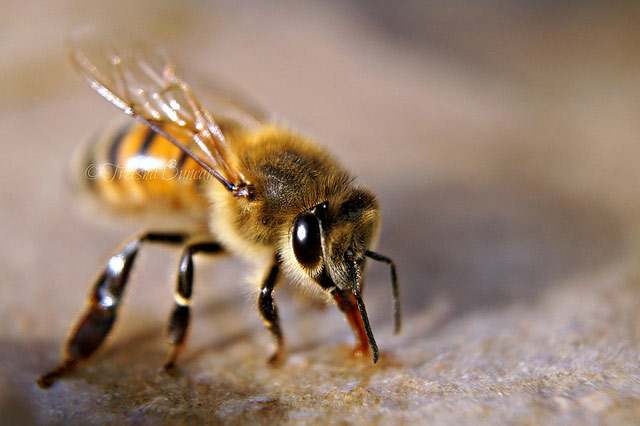
Poison Dart Frog
Even if you’re the type of person who thinks frogs are cute and potentially pet-worthy creatures, there are some frogs you just shouldn’t touch. It could kill you. Literally.
The tiny colorful poison dart frog might be pretty. But carries a poison on its skin, with some varieties carrying enough venom to kill ten grown men. According to National Geographic, the frogs might develop this venom after interacting with plants and insects, as those raised in captivity away from these parts of their natural habitat never create venom in the first place. Not all poison dart frogs are created equal though. There are more than 100 different species of them.
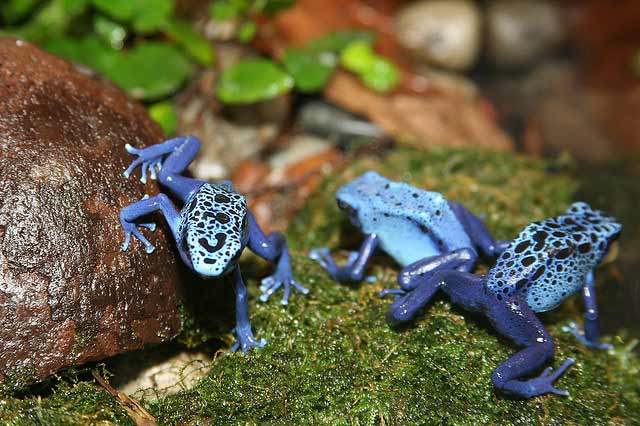
Dangerous Animals Next Door?
Don’t make the mistake of thinking dangerous animals are always of the exotic variety. You don’t have to go on safari or deep sea diving to come across creatures that can cause some serious damage.
You might even see and interact with dangerous animals on a regular basis. Remember, being dangerous isn’t always about being vicious. An animal can hurt you due to its sheer size, out of fear, or due to your own actions. Dog bites, being thrown from horses, and even being in car crashes with deer kill people every year. So exercise caution before interacting with animals that are unfamiliar to you.
Now let’s look at our original list of some of the most dangerous animals in the world.
—
Any animal can be dangerous at some point so it’s hard to determine the only one factor that would help us to define which animals are the most dangerous. I can consider even my own cat dangerous but in no way it can be compared to some beast like a bear. Today we’ll be speaking about mammals and in the next posts we’ll also research the most dangerous animals of other types as well as insects and will make a summary of the most dangerous animals in the world.
Animals can get angry when protecting their kids or territory or they can be hungry, or they they can be simply aggressive by nature. The bigger the animal is, the more dangerous it is and this combination with aggression is the factor what we’ll consider one of the main in the post today. Of course, we’re also taking into account the fatality statistics that sometimes as we’ll see does not depend on the the size of the animal at all.
The Wild Boar
Lives in: all around the world
Responsible for: no definite stats
Wild boars live in groups containing around 20 animals. They eat almost anything they come across, including grass, nuts, berries, carrion, roots, tubers, refuse, insects, small reptiles and even young deer and lambs. The animals are pretty big and can weight around 150-200 kg.
If surprised or cornered, a boar can and will defend itself and its young with intense vigor. The male lowers its head, charges and then slashes upward with his tusks. The female, whose tusks are not visible, charges with her head up, mouth wide, and bites. Such attacks are not often fatal to humans, but may result in severe trauma, dismemberment, or blood loss. The roars get very aggressive only when wounded and then they are most likely to kill.
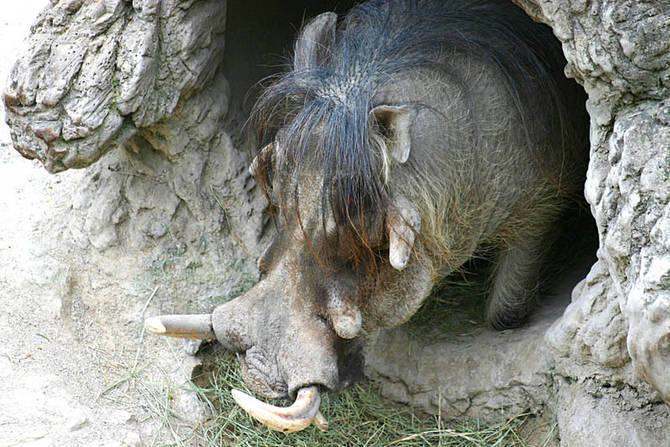
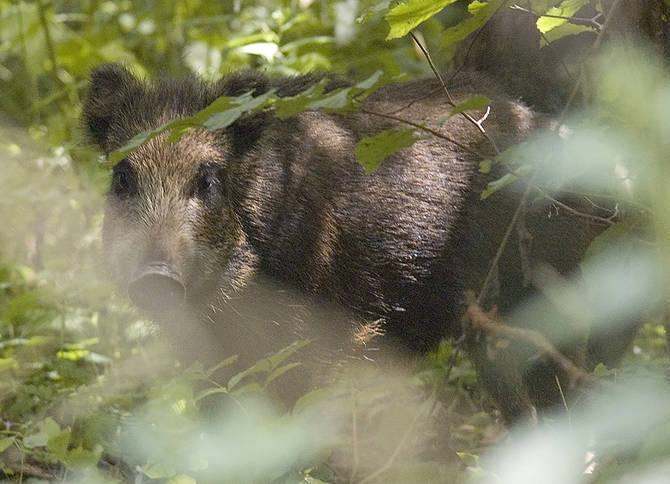
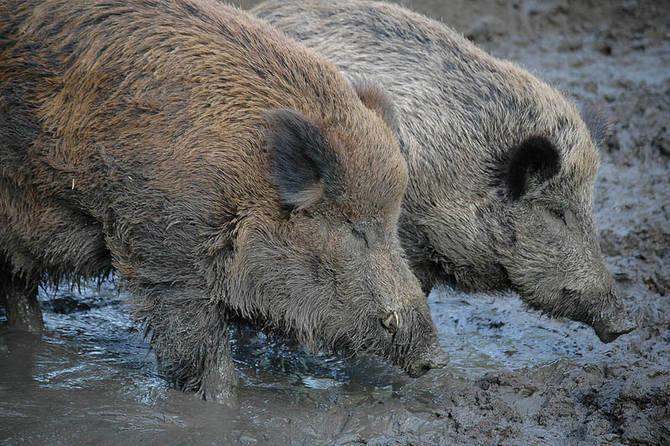
The bear
Lives in: North America, Canada, North Pole, Russia.
Responsible for: an estimated 5-10 fatalities a year.
We all have seen bears on the pics but meeting them in real and on their territory can lead to the death, the polar, black and grizzly varieties are deadliest. Bears are big animals that can swim, run fast ( up to 50 km/h), climb the trees and they eat everything from berries to meat. Though usually they are afraid of people, they can become very aggressive if being hunted, protecting their kids and just coming to your camp to get food.
If you faced the bear this doesn’t necessarily mean that it’ll attack you. Sometimes it can just demonstrate that it’s attacking but if you see the bear running to you and there’s no place to hide or there’s no the tree to climb, don’t turn away to run and don’t show you’re scared. Look at his eyes as long as you can, the bear may turn away at the last moment. You can shout and if you have a gun you can shoot into the air. Don’t shoot the bear if you are not sure this will kill him. The wounded bear is much more dangerous and the animal becomes fearless.
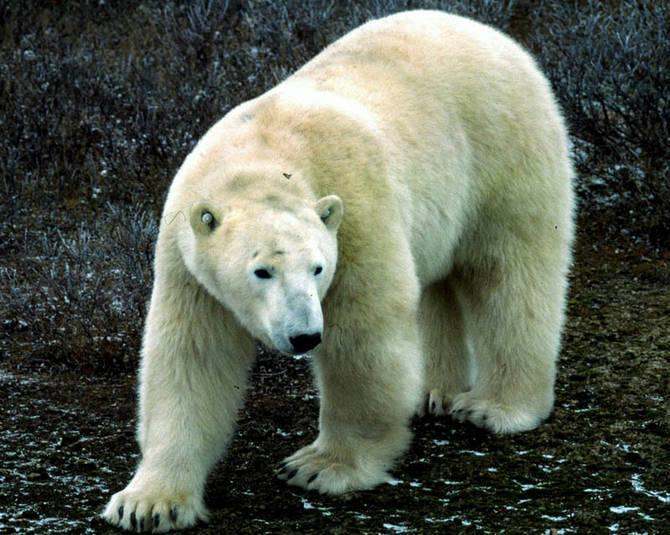
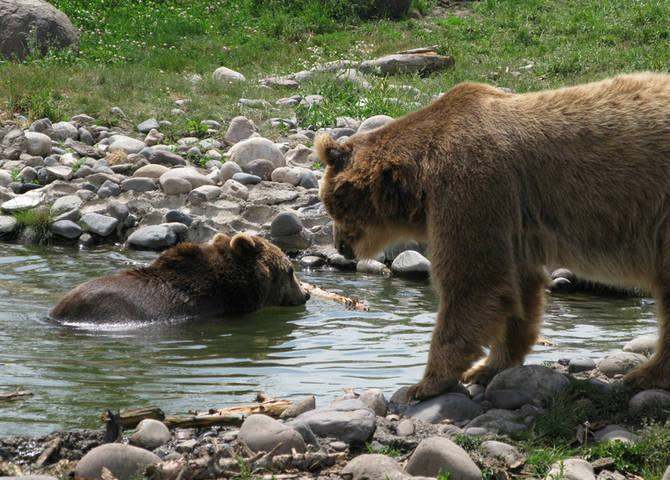
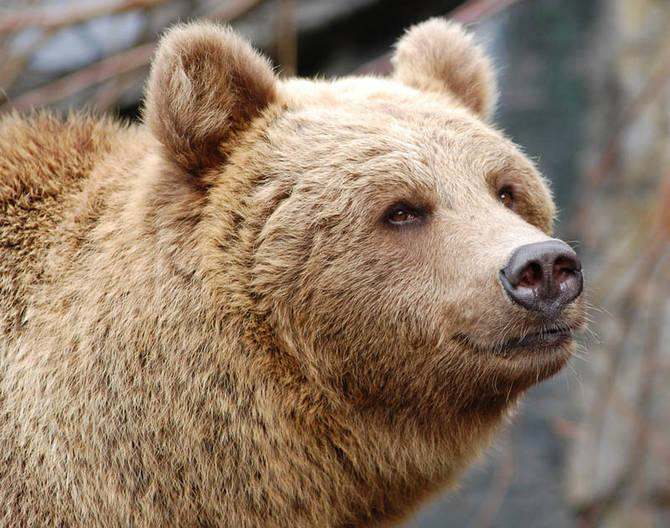
The Rhino
Lives in: Africa and India
Responsible for: an estimated 12-14 fatalities a year.
Rhinos are big, heavy, non predictable and not very peaceful animals. They can easily trample or gore any creature around that they consider dangerous or annoying. Being very strong and heavy (up to 3.5 tones) they can cause serious destructions. Back in 1928 a mature rhino collided 2 wagons from the rails and disappeared to the bushes without any injuries. Rhinos are pretty quick and can speed up to 30 km/h
If you see the rhino, try not no annoy him. In most cases it will sidestep and let you go without paying any additional attention to you. The rhinos are pretty blind and male rhinos can take your car for a female, so if you see the rhino running to your car drive away as fast as you can.
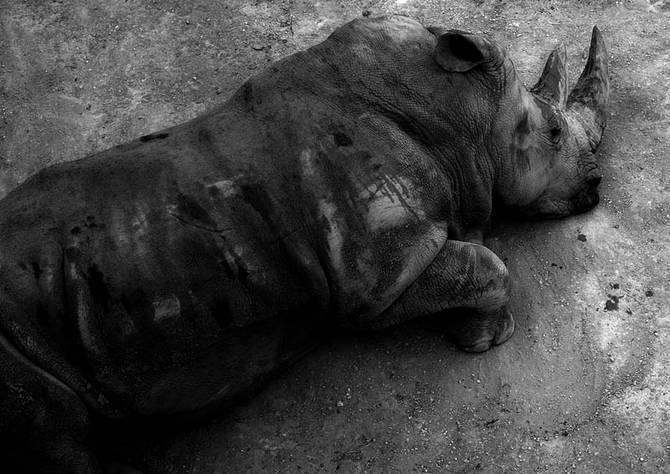
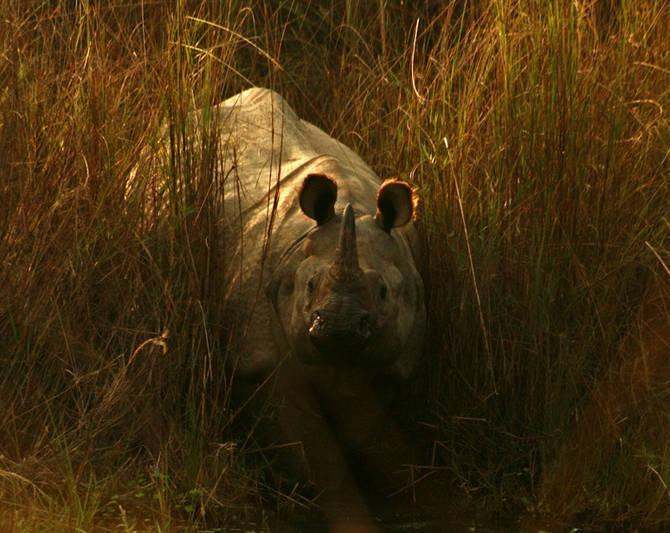
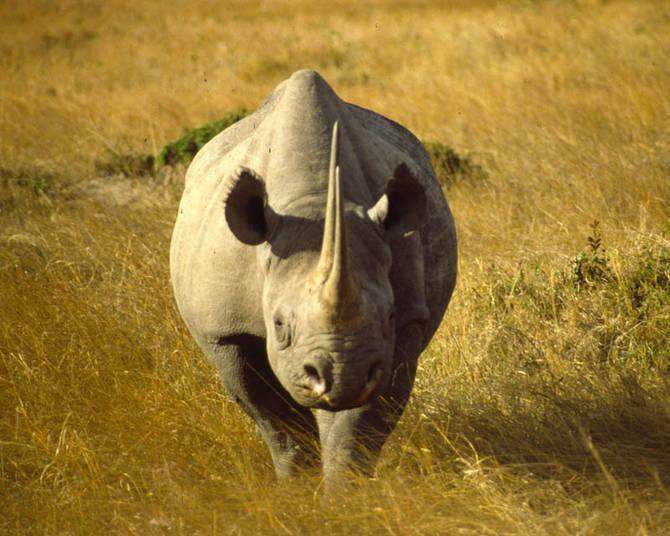
The hippopotamus
Lives in: Lakes, rivers, wallows – in fact any water – in Africa.
Responsible for: an estimated 100-150 fatalities a year.
At the first glance hippos look clumsy, awkward and lazy but that’s not the case. These animals are considered among most dangerous in the world. They weight about 3-4 tones and their bodies are about 3.5 meters long. If you wounded them or occasionally turned out to be on their territory next to them and there’s a hippo baby, most likely you’ll be killed. They can trample the invader or cause fatal wounds with their massive tusks. They can turn over a small vessel or bite through the lining with their teeth. Hippos can run pretty quickly, about 35 km/h on the land so there’s no chances you can run away.
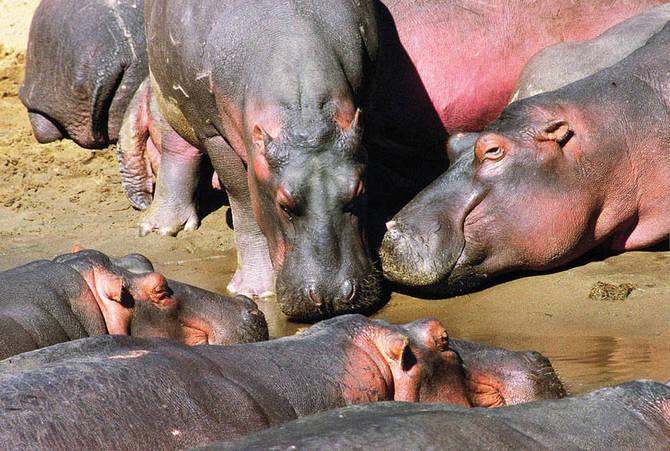
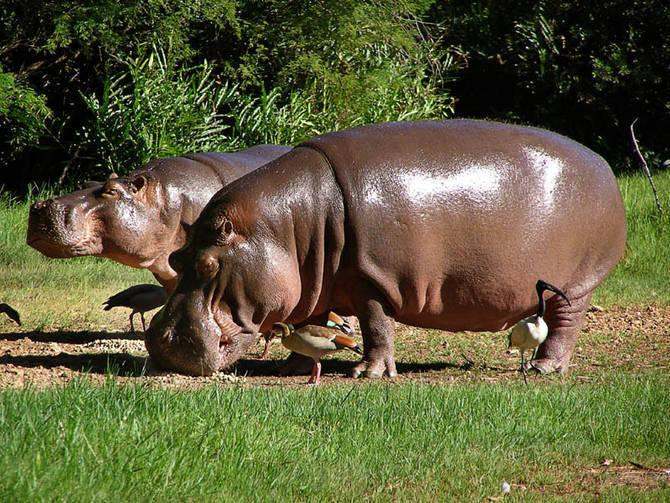
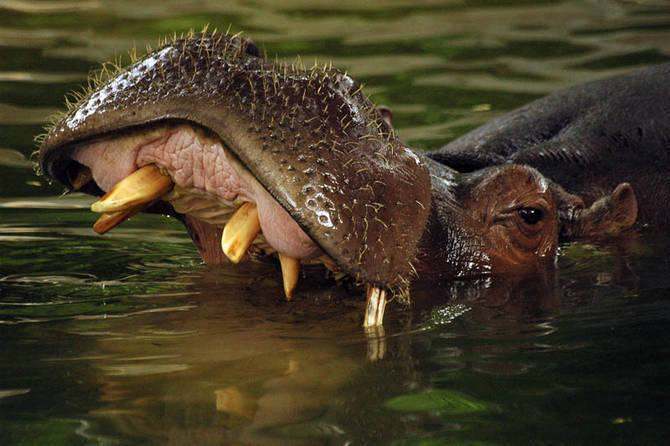
The Cape Buffalo
Lives in: Africa
Responsible for: an estimated 200 fatalities a year.
Also known as the African buffalo they are some of the most dangerous animals in Africa. They do not charge at humans for fun but they see the man as the predator and start fighting. According to stats, more hunters were killed by the buffalos than by lions so it’s a good point not to come close to the animals and let them feel safe for your own sake.
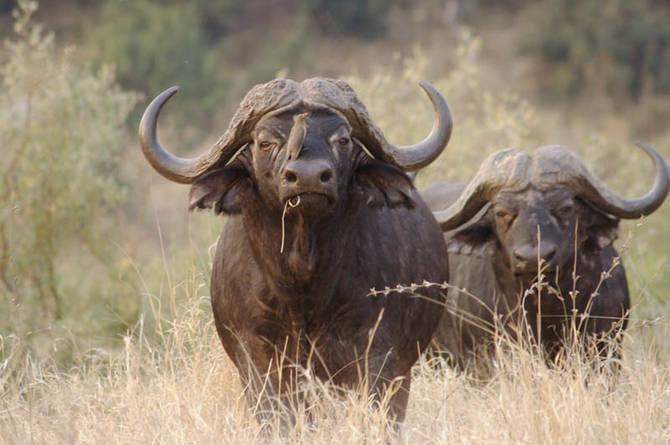
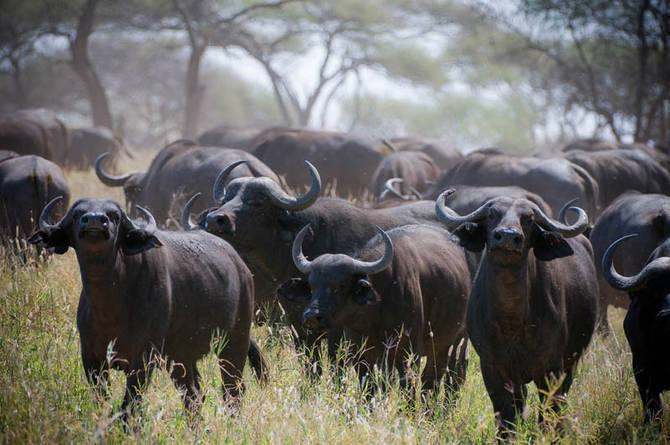
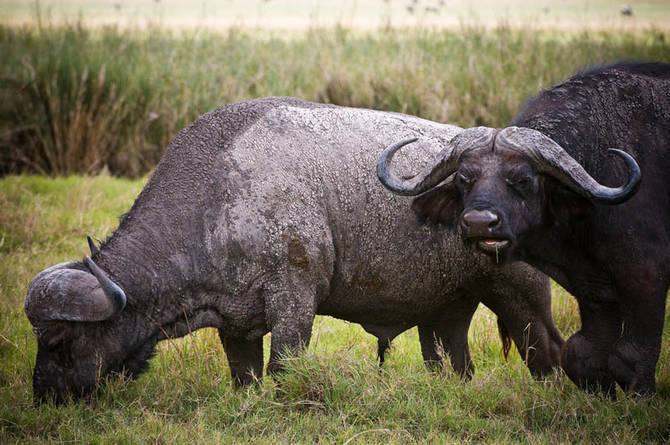
The Elephant
Lives in: Africa and India.
Responsible for: an estimated 300-500 fatalities a year.
Elephants are known as wise and friendly animals, but the true is that they kill an alarming amount of people every year. They are unpredictable creatures, and have been known to kill zookeepers who have been with them for as long as 15 years. Considering their huge size – the average elephant weighs over 6 tons – they trample and gore using their fearsome tusks and are capable of causing untold amounts of devastation.
If you think that you’ll be attacked by the animal, don’t startle at the beast. Make a loud noise or shout and see if there’s a big tree to climb around.
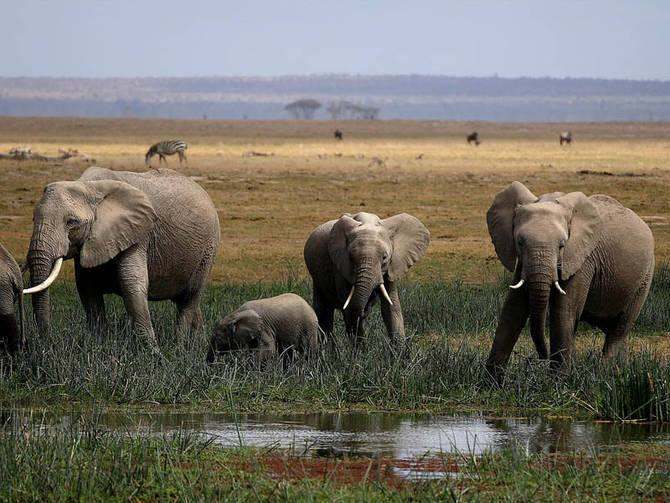
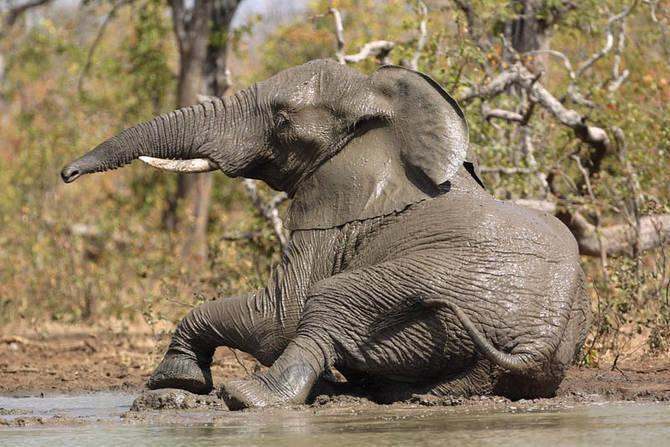

Big Cats
Lives in: Africa, North America and India
Responsible for: an estimated 800 fatalities a year.
Big cats such as lions and tigers will not usually attack the humans. But if they are very hungry and you are the only meat around, they can hunt you for food. Do not provoke the lion to attack and don’t show your fear. To avoid a heinous attack by a big cat, stare them in the eye and don’t look away. Don’t turn and run, you can’t overrun them in any case. If you have a coat, open it to appear larger as they are unlikely to attack a larger animal.
Old lions and tigers are extremely dangerous as they can’t hunt antelopes and other “quick food” while people are perfect and defenseless victims. The only way to stop the old animal from hunting people is to kill it. The history knows the case when 2 old lions killed 28 people that were building the railroad from Mombasa and Nairobi.
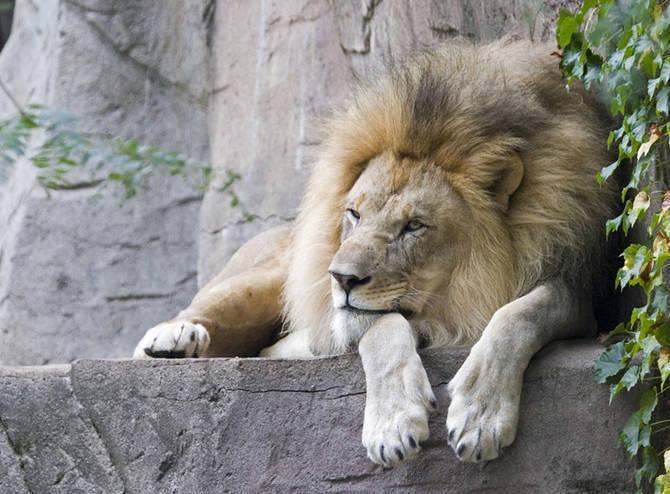
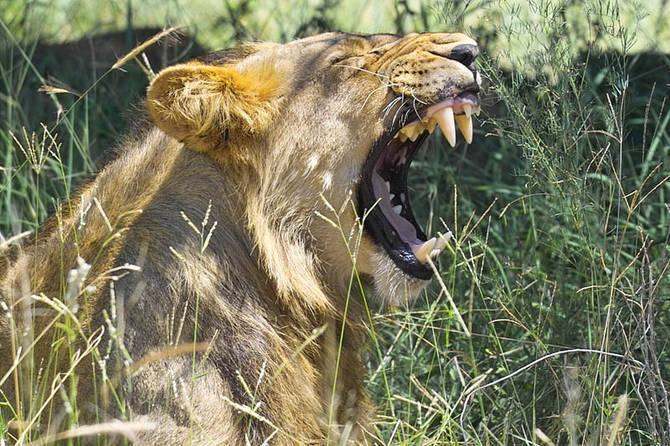
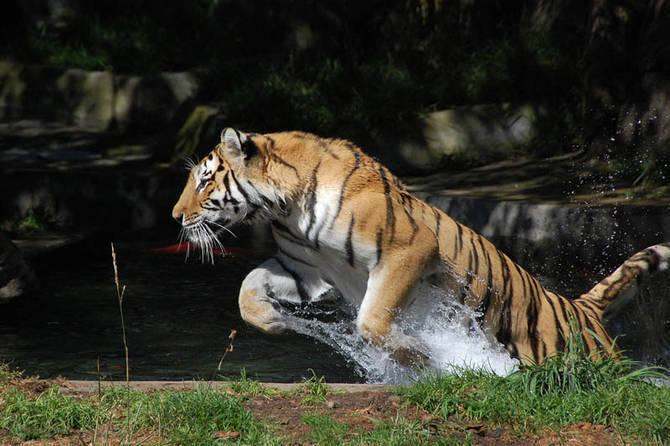
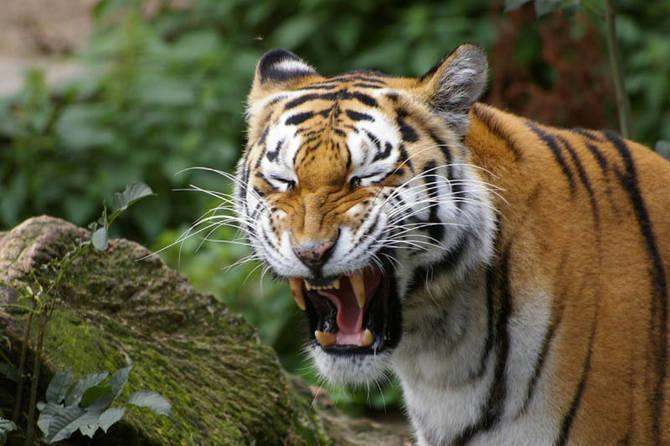
The Rat
Rat is the most dangerous mammal for humans, the potential killer of thousands of people. Rats are carrying more than 20 pathogens of various infections, including bubonic plague (Black Death), transmitted to humans by the bite, leptospirosis, relapsing fever, epidemic typhus etc.
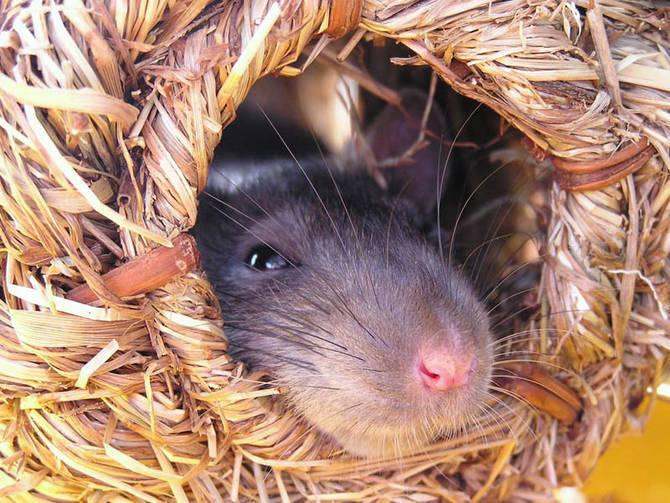
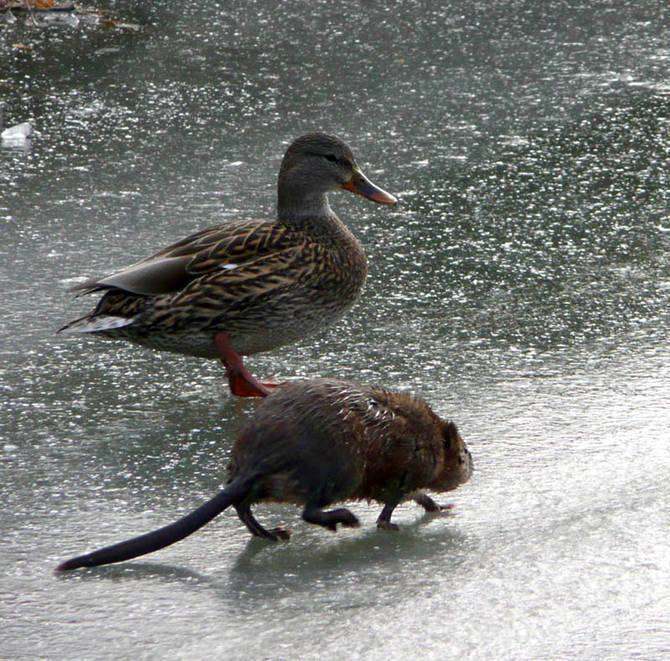
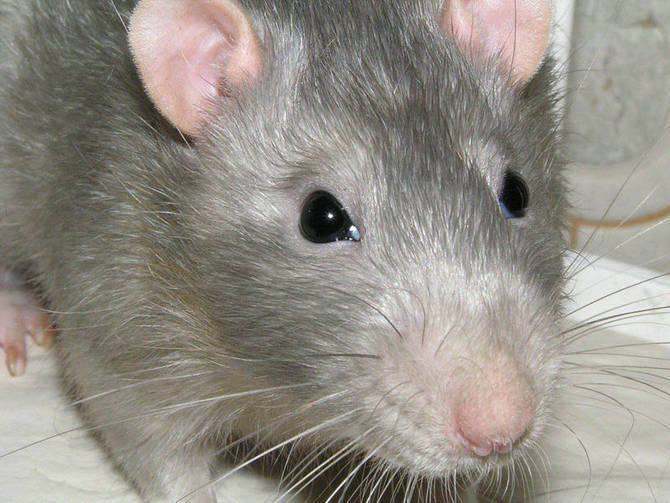
Note: This post was originally published on June 15, 2009. It was updated, additional content was added, and it was re-published on its currently-listed publication date.







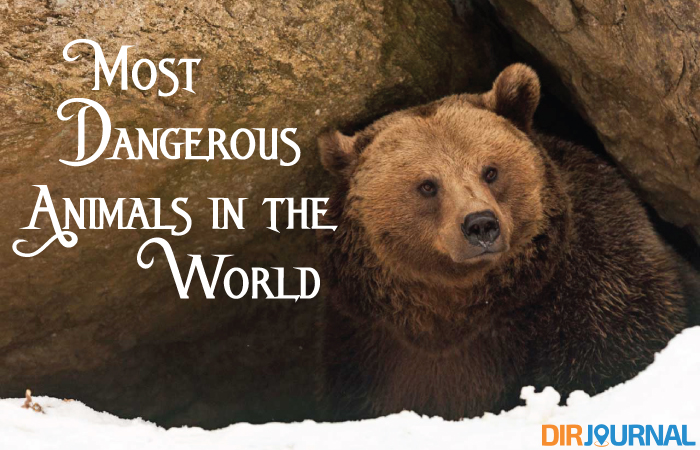






Oh and to add the irukandji are also dangerous, they are small jelly fishes who are really dangerous they can sting you and cuse the irukandji syndrome.
The piece of advice that stays “Look into a bear’s eyes for as long as possible” is wildly irresponsible advice, and will almost certainly get you killed if you follow this advice. Always avoid eye contact. Direct eye contact is considered a challenge by bears. The best thing you can do is make yourself seem as big as possible while speaking continuously, but not loud enough to actually alarm the bear, while backing away slowly. If the bear charges, do not run, as this will cause the bear to give chase. Stand your ground. It is common behavior for them to stop charging in these circumstances. If the bear attacks you anyway, protect your head and lay still. If it is clawing you, it will probably lose interest quickly. If it starts biting you, it has likely seen you as a food source due to starvation. At this point you could try hitting it on the nose to confuse it, but you’re probably screwed at that point.
HAHAHA they’re all chuck norris’s pets 😛
I LIKE ANIMAL
the opposition makes the animal how wild they can be..:)_
Wolves are very dangerous considering they hunt in packs
wolves are very dangerous consigering they hunt in packs
WHAT IS THE MOST DANGEROUS ANIMAL IN THE WORLD???????????????????? CAN SOMEONE TELL ME!!!!!!!!!!!!!!!!!!!!!!!!!!!!!!!!!!!!!!!!!!!!!!!!!!!!!!!!!!!!!!!!!!!!
NO!!!!!!!!!!
Mosquito
i am the most dangerous mammal of the world
What the he’ll you moron wat do u mean
you are all benders the most dangerous animal is the honey badger especially if you are a male because it will attack your bollocks and their thick skin means they cant be killed by machetes or spears only by being shot with a gun in the head.
http://www.todayifoundout.com/wp-content/uploads/2011/08/honey-badger.jpg
hahahaha THEWASIFWAQUAR. “attack your bollocks”. no but seriously the most dangerous animal is the mosquito causes the most deaths than any other animal.
No if you were in a 1 vs 1 fight against a mosquito you would crush it with a gay slap but a honeybadger would molest ur bollocks and then you would have your precious apples ripped off
Peter griffin would have his face mauled off
i mantain that the most dangerous animal is the mankind as ive been mugged twice, burgaled once, stabbed in the leg and raped intensively. But its expected living in south africa
Trust me here in Somalia the pirates are worse, they gave me AIDS not to mention i lost my V-card definitely the most dangerous animal
you havent been to Whales then, no sheep there has its anal virginity there. All because of horny homosapiens. HUMANS ARE THE MOST DANGEROUS ANIMAL!!! especially if your welsh.
omg, humans are definatly the most dangerous animal, because i once saw a teenager down the canal kick a swan in the face.
-but spiders are pretty scary
u guys r so stupid. Homosapien is a scientific name for humans
and humans are nt animals their humans
i think the most dangerous animal in the world is crocodile and snakes
yes
I once saw this youtube video where a man was eaten by a killer whale.
Was it Shamu?
it is a good website check it out
Well i do realise that mosquito’s are in fact the deadliest animal, but i doubt it being the most dangerous, considering it would take a long time for a creature like it to kill in an instant… Crocodiles for example are more dangerous considering it’s large, quick and can kill a person within 3 minutes
but..what is the only one..who can tell me what is the dangerous/deadliest animal in the world ……i thought the no.1 for me is the donkey.. that’s my classmate told me and the 2nd is the king cobra because i caught that in our news..because of it’s venum..!!! and the 3rd is the bald eagle..that’s my mom told me..even when they saw you they can use their sharp clause and specially their sharp hands. 🙂
The black mamba is the most dangerous snake for your information call me snooty but I can’t help it if I’m destined to be more brainy than you lol!!!!!!!!!
interesting
Now I know what are the effects of dangerous animals thanks for helping me by Patrick moganedi
very dangerous n cute
the mosquito is the most dangerous. forget the rat